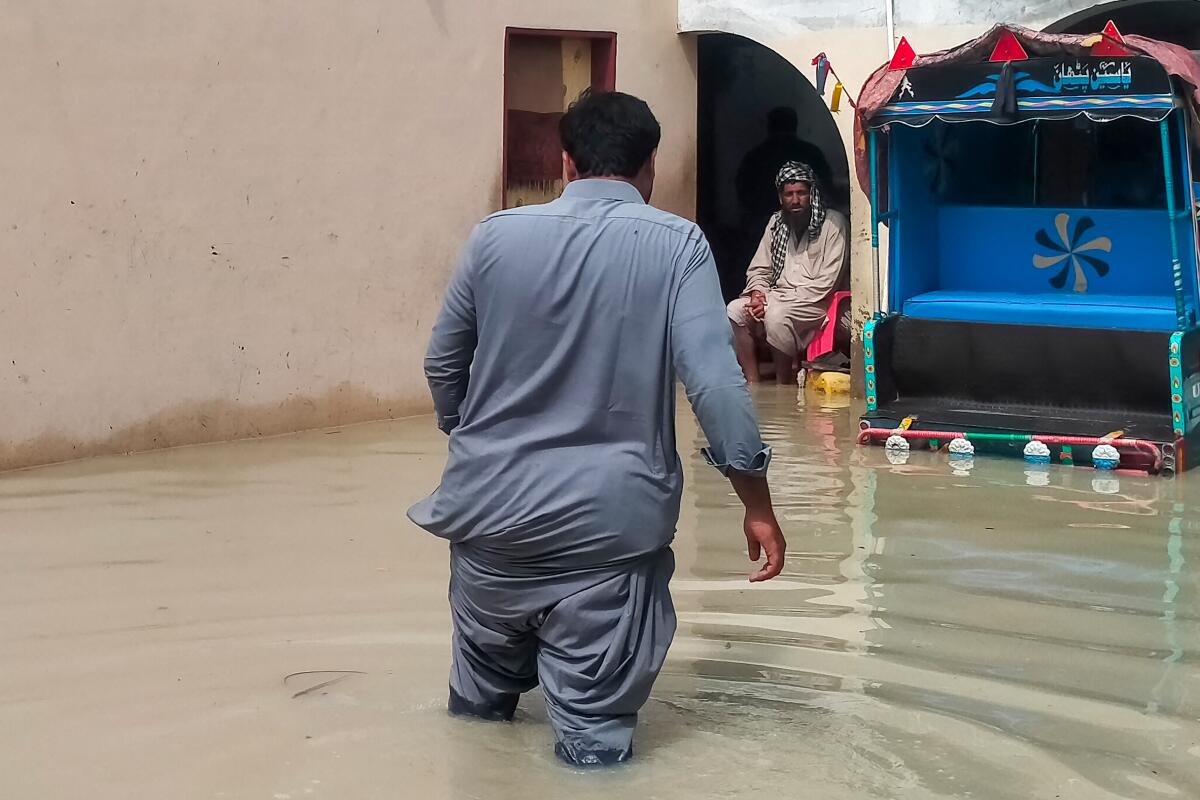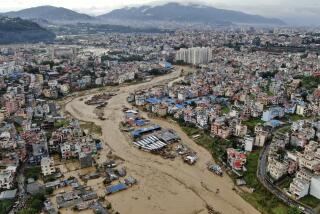Heavy rains in Pakistan kill at least 29 as buildings collapse and landslides block roads

- Share via
PESHAWAR, Pakistan — Pakistani authorities said Sunday at least 29 people died and 50 others injured due to heavy rains that swept across the country in the past 48 hours, causing several houses to collapse and landslides to block roads, particularly in the northwest.
This comes as Pakistan is also witnessing severe snowfall.
About 23 rain-related deaths were reported in Khyber Pakhtunkhwa province bordering Afghanistan since Thursday night, the provincial disaster management authority said in a statement.
Five people died in southwestern Baluchistan province after the coastal town of Gwadar got flooded, forcing authorities to use boats to evacuate people.
Casualties and damages were also reported in Pakistan-administered Kashmir, the National Disaster Management Authority said in a separate statement.
Emergency relief was being provided to people in affected areas and heavy machinery used to remove debris blocking highways, the agency added.
The country’s Karakoram Highway, which links Pakistan with China, is still blocked in some places due to landslides, according to the spokesman for the northern Gilgit Baltistan region, Faizullah Faraq.
Authorities advised tourists against traveling to the scenic north due to weather. Last week, several visitors were stranded there because of the heavy rain.
This year, Pakistan is witnessing an unusual delay in winter rains, starting in February instead of November.
Monsoon and winter rains cause damage in Pakistan every year.
In 2022, unusual climate-induced monsoon rains and flooding devastated impoverished Pakistan, killing more than 1,739 people, affecting around 33 million people and displacing nearly 8 million. The rains and floods that year also caused billions of dollars of damage to the country’s economy, and in some areas, people who lost their homes are still living in makeshift shelters.
More to Read
Sign up for Essential California
The most important California stories and recommendations in your inbox every morning.
You may occasionally receive promotional content from the Los Angeles Times.










